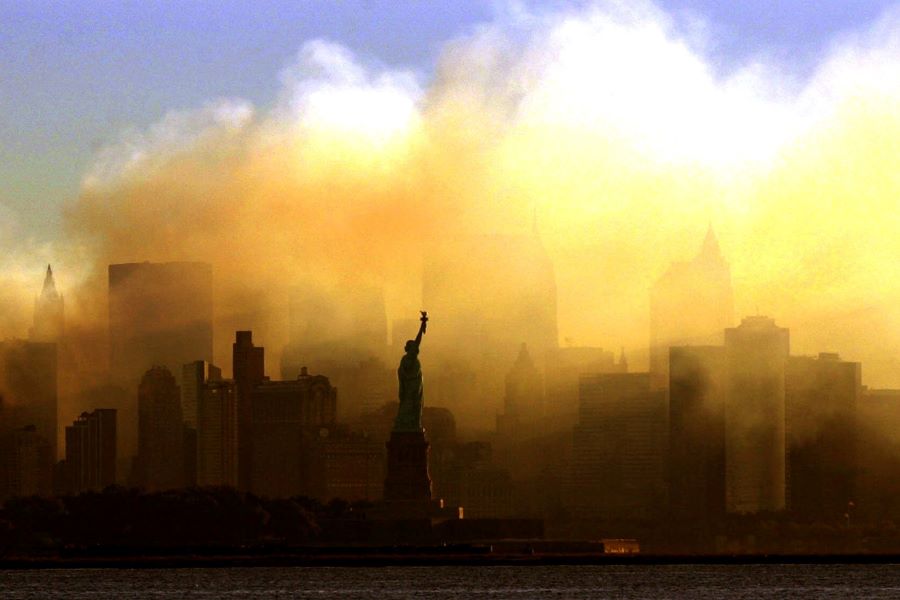
by Gene Gibbons | 10 Sep 2021 | Decoders, Educators' Catalog, Islam, Personal Reflections, Politics, Terrorism, World
Primitive tribes helped topple the powerful Roman Empire. Did attacks on the U.S. by Islamist extremists 20 years ago augur the end of a superpower? The Statue of Liberty and New York City’s skyline as smoke rises from the ruins of the Twin Towers, four days...
We often hear that history repeats itself. A core tenet of News Decoder’s mission is to help students place current events in a broader historical context. Correspondent Gene Gibbons looks beyond today’s headlines all the way back to ancient Rome to show how pride, corruption, strategic overreach and other political mistakes have contributed to the decline of superpowers, then and now.
Exercise: Ask students to debate the question in the headline, providing evidence for their position.
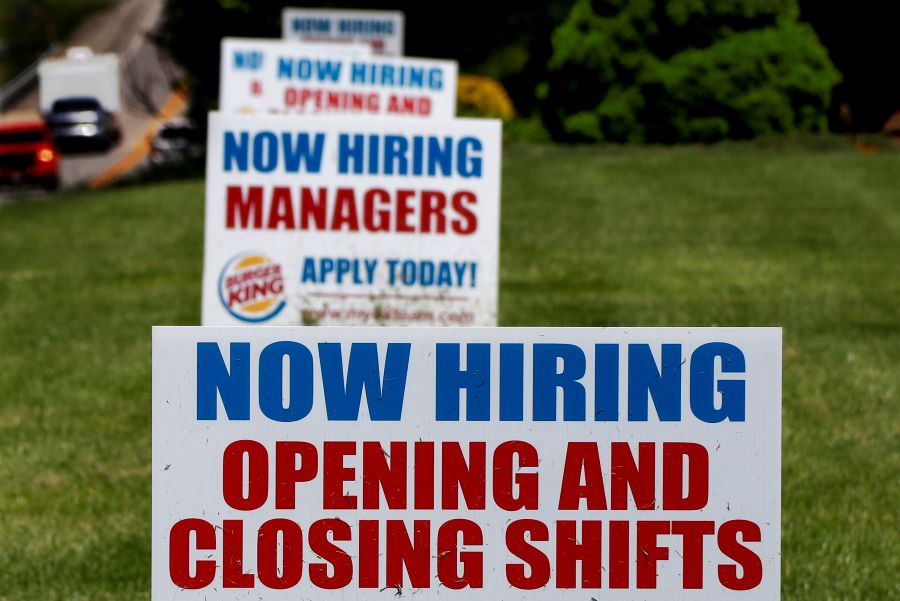
by Sarah Edmonds | 8 Sep 2021 | Decoders, Economy, Educators' Catalog, World
Many nations’ economies are bouncing back from COVID-19, putting upward pressure on prices. The jury’s out on whether inflation is back to haunt us. Signs advertising jobs in Harmony, Pennsylvania, 21 May 2020. Increased economic growth in some economies...
Inflation can be a challenging topic to understand. What exactly is it, why is it important and is it really all that bad? Correspondent Sarah Edmonds brings her economics expertise to this decoder that unpacks the link between the prices of goods and services and the value of your money, and shows how consumer expectations as economies rebound could lead to an inflationary spiral.
Exercise: Ask students to compare the average price of goods in their city, such as food, gas or a new car, with average local wages since the pandemic began in March 2020. How have they changed (or not)?
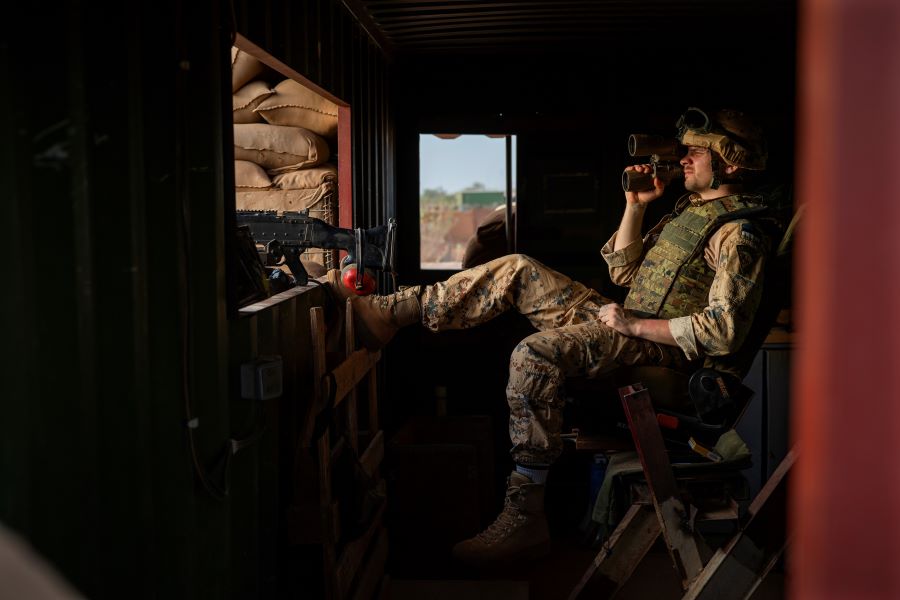
by Jessica Moody | 6 Sep 2021 | Africa, Asia, Conflict, Educators' Catalog, Islam, Politics, World
Islamist extremists are threatening fragile nations in West Africa. Will Afghanistan’s fall to the Taliban yield lessons for France in the Sahel? A soldier guards a Western military base in Gao, Mali on 6 June 2021, days after France announced the end of its...
When it comes to world politics, major news outlets often focus on one place at a time, obscuring important events unfolding elsewhere that can cause geopolitical ripples. In this article, News Decoder’s Jessica Moody shines a light on extremist violence plaguing West African nations in the Sahel, the semi-arid region below the Sahara. She draws parallels between French military involvement in the region and the United States’ recent withdrawal from Afghanistan, highlighting the global challenge of preventing extremist groups from proliferating in fragile states.
Exercise: Ask students to search news sites or newspapers for a global story that is not on the front page, then have them share their findings and explain why we should pay attention.
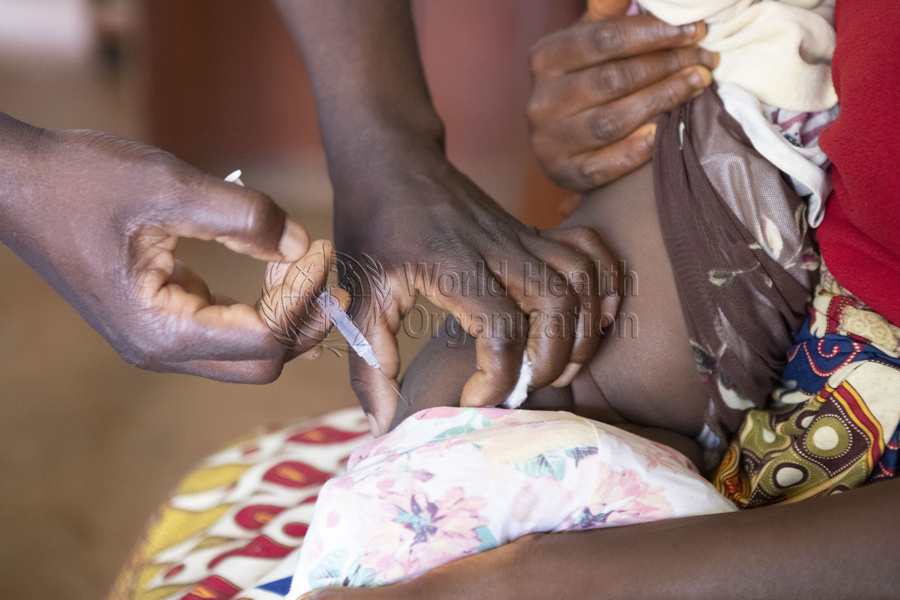
by Maggie Fox | 25 Aug 2021 | Educators' Catalog, Health and Wellness, World
COVID-19 could have brought out the best in humanity. Instead, public health programs have fallen short, exposing us to a resurgence of diseases. A baby is vaccinated against malaria in Malawi. (WHO/Mark Nieuwenhof) COVID-19 has shut down vaccination programs around...
Headlines about COVID-19 understandably tend to focus on the current state of affairs — cases, hospitalizations, deaths, new variants, vaccines. It takes the kind of expertise that Maggie Fox has earned in years of writing about science and health to look beyond today to see what the pandemic means for tomorrow. Citing the latest research, Fox explores how public health services are failing to cope with myriad illnesses that don’t stop in their tracks just because there’s a pandemic. The outlook is not bright.
Exercise: Ask your students to speak to a local epidemiologist to learn how COVID-19 is affecting public health services nearby and the impact the pandemic is having on the fight against other illnesses.
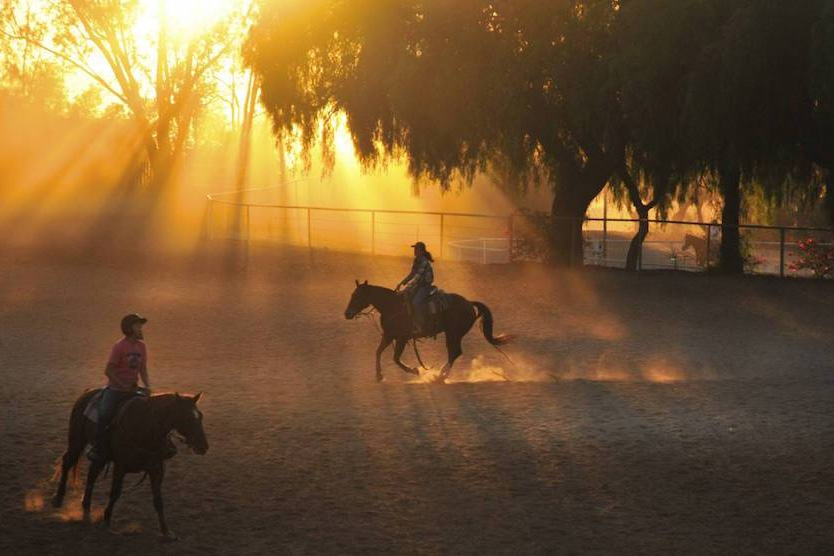
by Christina MacCorkle and Lucy Maitland-Lewis | 18 Aug 2021 | Educators' Catalog, Environment, Politics, Student Posts, Thacher School, Youth Voices
The U.S. government owns the rights to any oil under our school. So, could frackers drill on campus? Turns out, the only certainty is the need to vote. Gymkhana Field at The Thacher School (Carin Yates/Thacher School) Since its founding in 1889, The Thacher School in...
Journalism is an adventure and publishing a process — lessons that Christina MacCorkle and Lucy Maitland-Lewis learned in spades in producing their article on a beloved field at their school in California. Gymkhana Field is where generations of Thacher School students have ridden horses, but it may also lie above valuable oil. Which is where the U.S. agency that manages federal lands enters the picture. Their story went through multiple drafts as they dug deeper and deeper into the web of issues. The bottom line is that the field’s future is uncertain — an ambiguous conclusion that could frustrate some writers. But the authors learned from the experience and their story educates us as well.
Exercise: Ask your students to research the history of their school grounds and to find out whether there is a chance that there could be changes to the school’s footprint, and if so, why.
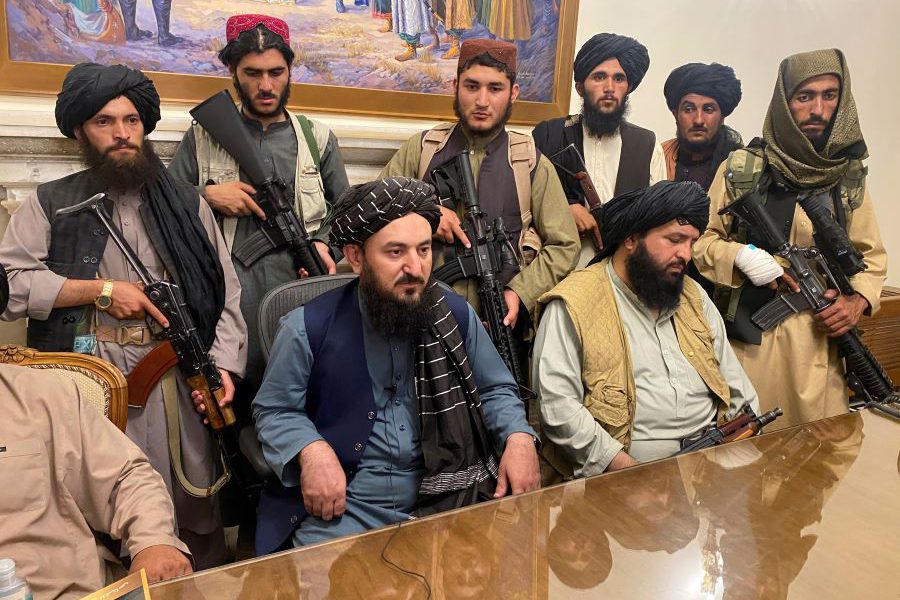
by Alistair Lyon | 16 Aug 2021 | Asia, Conflict, Educators' Catalog, Eyewitness, Human Rights, Islam, Politics, Terrorism, World
The Taliban have seized power in Afghanistan after another failed foreign intervention. Will they ease their hard line? And what lessons can be learned? Taliban fighters in Afghanistan’s presidential palace, Kabul, Afghanistan, 15 August 2021 (AP Photo/Zabi...
The reconquest of Afghanistan by the Taliban is a fast-moving story, and the mainstream media is busy keeping us informed of the latest developments. It’s one of those stories that cries out for context, and Alistair Lyon delivers the goods in his tour de force, informed by his years on the ground in the South Asian nation. If those who don’t know history are destined to repeat it, then Lyon’s article might help young readers understand why the U.S. intervention in Afghanistan was almost destined to fall short — and help them avoid similar mistakes in the future.
Exercise: Ask your students to compare U.S. involvement in Afghanistan with another foreign entanglement, and to elaborate on similarities and differences between the conflicts.
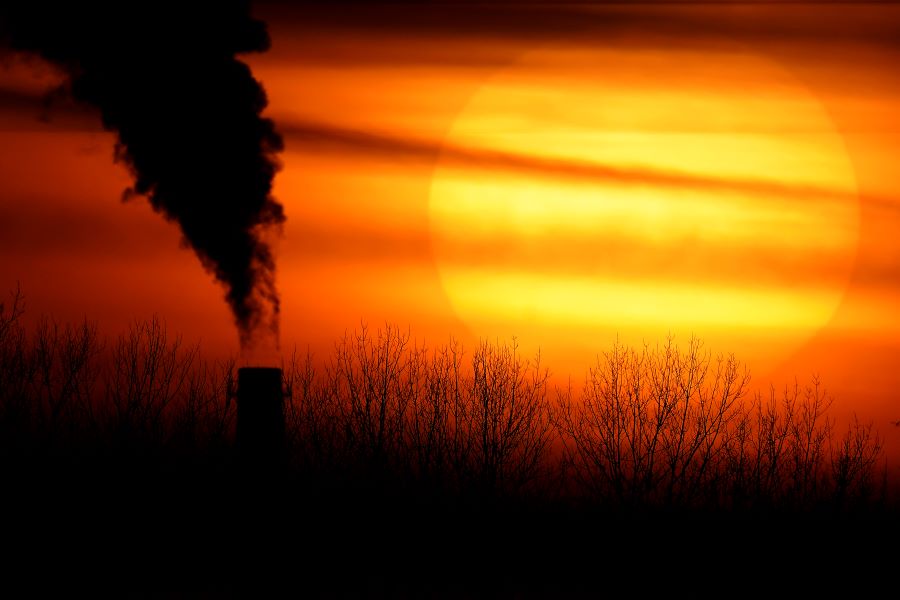
by Alister Doyle | 10 Aug 2021 | Climate change, Educators' Catalog, Environment, Technology, World
It’s taken more than a century, but experts now say humans are definitely to blame for the climate crisis. Will a UN report spur nations to take action? Emissions from a coal-fired power plant in Independence, Missouri, United States, 1 February 2021 (AP...
Alister Doyle puts his years of experience covering the environment to use in connecting the dots between the umpteenth report on the climate crisis and the umpteenth global meeting on what to do. Doyle provides a genuine service in showing us why the latest report by government experts and climate scientists has a bearing on the summit later this year in Glasgow to review the 2015 Paris Climate Agreement. Doyle’s report exemplifies News Decoder’s mission to explain complex global problems in a dispassionate, balanced and understandable way.
Exercise: Ask your students to choose an issue on the front page of a daily newspaper or on the nightly news, and to write an article explaining the background to the issue and why it’s important to the readers.
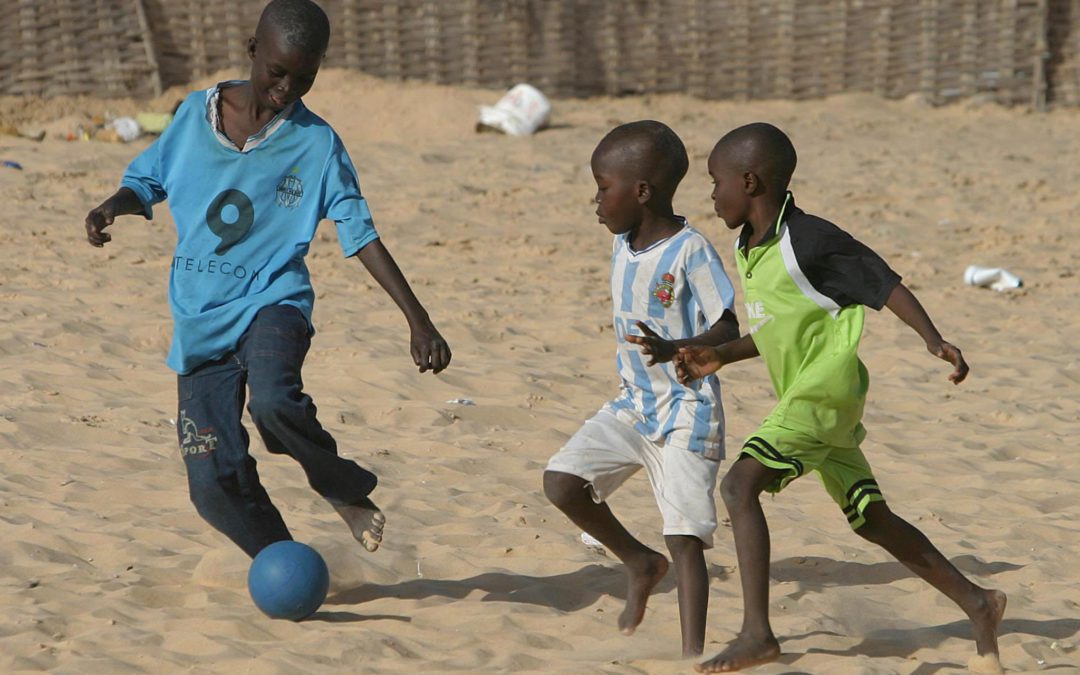
by John Mehaffey | 22 Jul 2021 | Educators' Catalog, Refugees, Sport, World
Wesley Mukerinkindi and Gaetan Ekoondo wanted to help youth pitch their skills to professional sports teams. Here’s what they created. Senegalese boys play football in Dakar, Senegal, 26 January 2005. (EPA Photo/Nic Bothma) Wesley Mukerinkindi was just two years old...
Students often wonder how they can make a difference in the world. Wanting to give back to their communities, young entrepreneurs Wesley Mukerinkindi and Gaetan Ekoondo — whose families fled from violence in Rwanda and the Congo when they were children — launched Search Your Team to create equal opportunities for other refugees and underprivileged youth through sports. News Decoder correspondent John Mehaffey interviews Mukerinkindi to learn how the pair were inspired to start the online platform, which helps youth athletes reach their dreams by showcasing their abilities to professional soccer clubs or college basketball teams.
Exercise: Ask students how their personal passions or experiences might be an inspiration to start their own community project and support other young people.
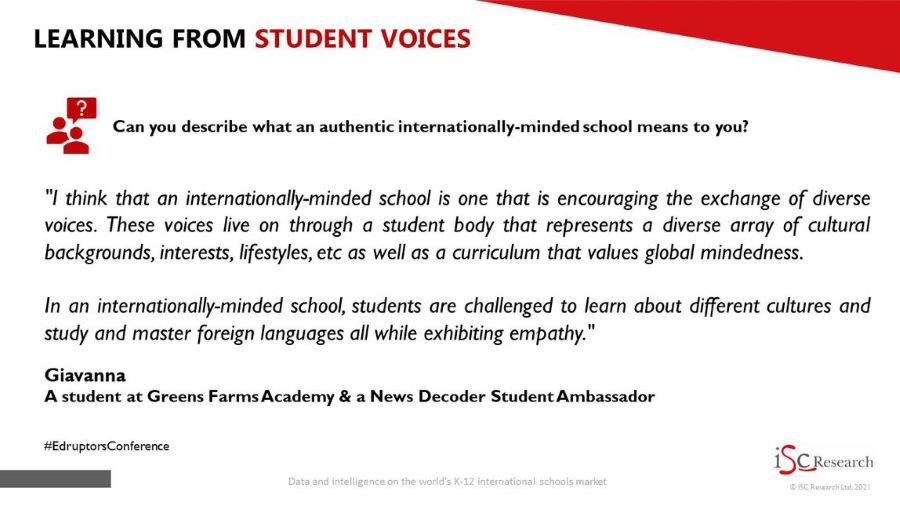
by Nelson Graves | 16 Jul 2021 | African Leadership Academy, Educators' Catalog, Greens Farms Academy, News Decoder Updates, Transylvania College, Youth Voices
Three students from News Decoder partner schools offered their thoughts on the future of international schools at a recent meeting of top educators. When one of the world’s prominent authorities on international schools wanted to hear students’ views on...
Diversity, inclusion and equity in education are top of mind for young people today. But how often are their voices heard at the top? Three News Decoder Student Ambassadors recently had the opportunity to speak directly to senior educators attending ISC Research’s virtual “Edruptors Conference.” Varlee Fofana of the African Leadership Academy in South Africa, Ioan Pristavu of Transylvania College in Romania and Giavanna Bravo of Greens Farms Academy in the United States emphasized the importance of a global-minded curriculum, diversifying admissions processes and encouraging equal participation among students.
Exercise: Ask students to identify how their school supports diversity, equity and inclusion, and where it could improve.
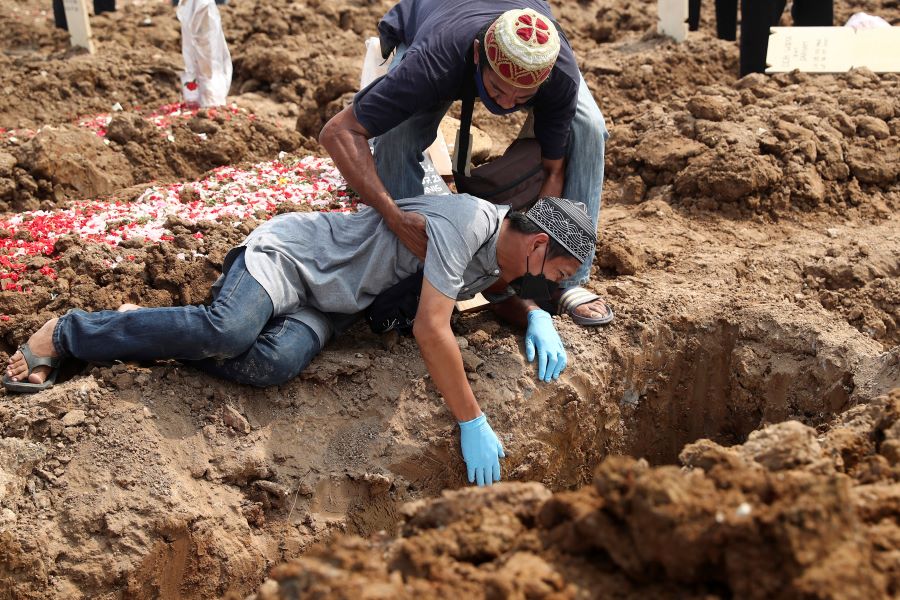
by Jonathan Thatcher | 12 Jul 2021 | Asia, Economy, Educators' Catalog, Eyewitness, Health and Wellness
The world’s fourth most populous nation, Indonesia is struggling to keep fast-spreading COVID-19 from undermining its economic growth prospects. A man falls to the ground during the burial of a relative who died of COVID-19, Jakarta, Indonesia, 7 July 7 2021....
News Decoder aims to spotlight regions of the world that often don’t make the headlines. With an estimated 270 million people, Indonesia is the fourth most populous country after China, India and the United States. Correspondent Jonathan Thatcher, former Jakarta bureau chief for Reuters, draws our attention to the devastating impact of the pandemic on the island nation and why it matters. His article explains how COVID-19 tore through the country, stalling economic growth, and warns of the potential long-term impact on youth employment — what he calls “an especially frightening prospect.”
Exercise: Ask students how they think the pandemic will impact economic opportunity for young people in their country.










